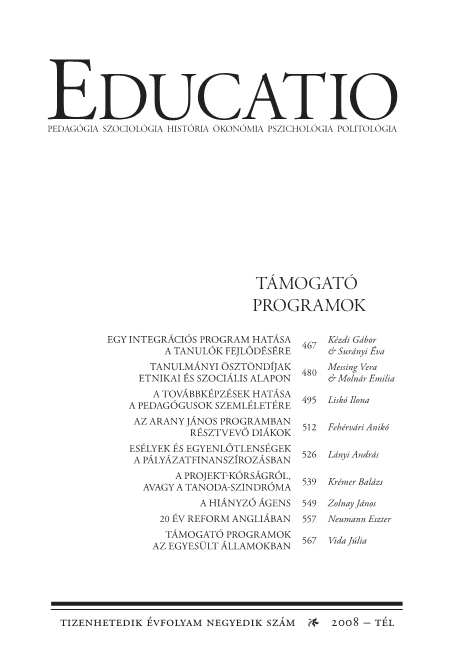A projekt-kórságról, avagy a tanoda-szindróma
The project-disease – or, the “tanoda syndrome”
Author(s): Balázs KrémerSubject(s): Civil Society, State/Government and Education, Social differentiation, EU-Approach / EU-Accession / EU-Development, Sociology of Education
Published by: Akadémiai Kiadó
Keywords: EU financed projects; technical difficulties; bureaucratic procedure;
Summary/Abstract: EU financed projects often are seen as miraculous tools of public policy reforms, such as in the case of policies that promote equal educational opportunities. However, in reality running projects can turn into rather painful processes and become frustrating obstacles for the partners involved. Balázs Krémer argues that the technical difficulties detected at a surface level are rooted deeply in the widely shared attitudes and philosophies of the projects. Two main ideas are highlighted among the conceptual problems. One of them is the role of public managers who require certain tasks from the successful applicants to do – but, in fact, they do not assume responsibility by imposing more substantial requirements. They rather tend to introduce over-detailed and over-bureaucratic procedural rules which are clearly pointless. Instead of that, they should implement regulatory and financial tools that could help make the new developments sustainable. Eventually, sustainability becomes the task of the supported providers – for whom it is a mission impossible without the necessary assistance from the relevant government agencies.
Journal: Educatio
- Issue Year: 17/2008
- Issue No: 4
- Page Range: 539-548
- Page Count: 10
- Language: Hungarian

